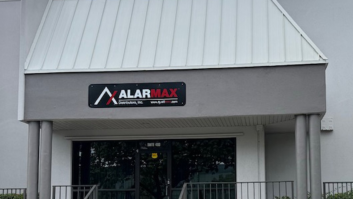Overland Park,
Kan. – Sprint formally opened the door to reselling Lightsquared’s planned —
and controversial — 4G LTE service instead of, or possibly in addition to, reselling
Clearwire’s 4G WiMAX service.
In an analysts’
conference call, Sprint said it would outline its 4G plans in detail at an Oct.
7 investors’ meeting, where it will also provide details of its plans to
overhaul its own network of wireless base stations.
Sprint struck a
15-year agreement to add Lightsquared’s L-band spectrum to its planned new
nationwide network of base stations and to operate an L-band LTE network for
Lightsquared, which in turn plans to resell 4G airtime on a wholesale basis to
carriers and other companies wanting to offer the service under their own
brand.
Under the
agreement, Sprint gets $9 billion in cash over 11 years plus $4.5 billion in
credits toward purchasing Lightsquared’s LTE terrestrial and satellite airtime,
which it could then resell under the Sprint brand.
Although Sprint
hasn’t announced whether it will resell Lightsquared 4G service, the company
said the purchase credits give it “the option to obtain cost-competitive access
to 4G capacity by offsetting Sprint’s purchase of 4G capacity from Lightsquared
should Sprint elect to incorporate the L-band LTE capability as part of its 4G
offering.” Sprint also has an option to purchase up to 50 percent of
Lightsquared’s capacity.
As part of the
deal, Clearwire gets the opportunity to resell Sprint’s 3G service to its
customers, enabling them to offer a combined 3G/4G service.
The agreement,
however, is contingent on Lightsquared getting Federal Communications
Commission (FCC) approval of its plan to mitigate potential network interference
with GPS devices.
Also as part of
the agreement, Sprint gets a second lien on “certain” Lightsquared spectrum.
Sprint, however,
currently resells 4G WiMAX service provided by Clearwire. Sprint is also
Clearwire’s largest shareholder, owning a little less than 50 percent of the
company.
Sprint also has an
agreement through 2012 to resell Clearwire service and an option to renew after
that.
Besides hosting
Lightsquared spectrum, Sprint could potentially host Clearwire spectrum to help
that company expand its 4G footprint. On that issue, Sprint executives would
only say that at their Oct. 7 meeting, they will comment about hosting spectrum
from companies besides Lightsquared.
Lightsquared plans
to launch 4G service in select markets in 2012 if it gets final approval from
the FCC.
A variety of
industry groups and government entities, however, are lobbying against Lightsquared’s
original plan and the company’s newly promoted Plan B. The new plan would reduce
Lightsquared-network output and initially limit operation only to a lower
portion of L-band spectrum farther from GPS spectrum. The company would also develop
plans in the interim to minimize interference in the remainder of the its spectrum.
One industry
group, the U.S. Global Positioning System Industry Council, claimed that
testing by a working group set up by the FCC showed that the revised plan would
still interfere with all sorts of GPS devices, including consumer navigation
products. Tests found that 20 of 29 consumer navigation products “experienced
harmful interference” and that six of 39 GPS-equipped cellphones also suffered
interference from Lightsquared’s signals in the lower portion of the ban, the
council contended in its own report.













